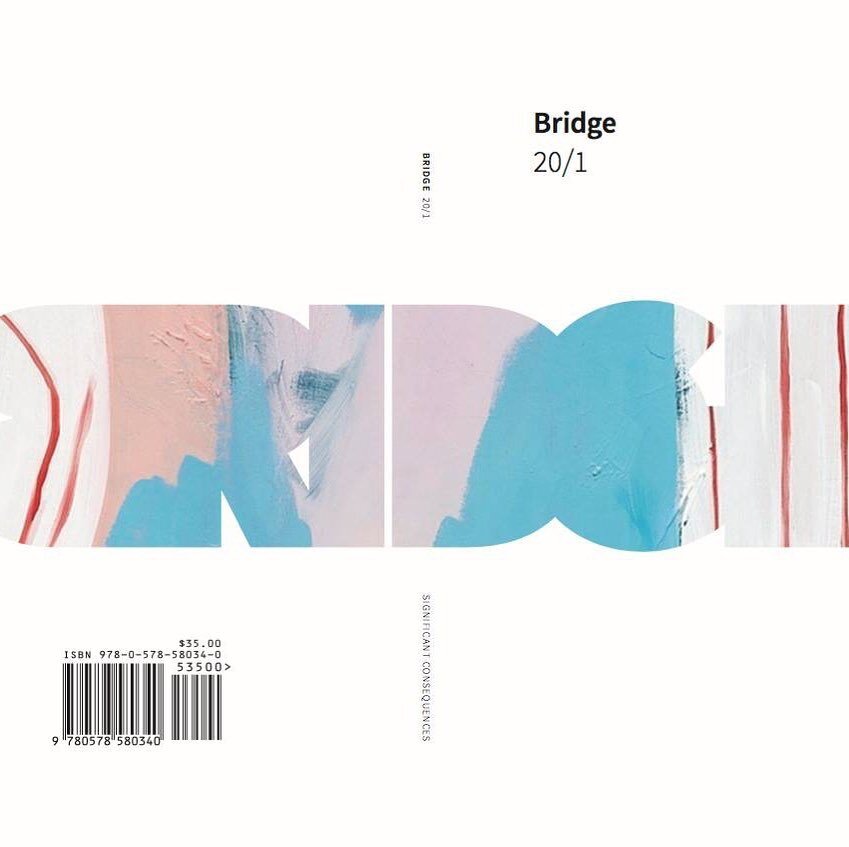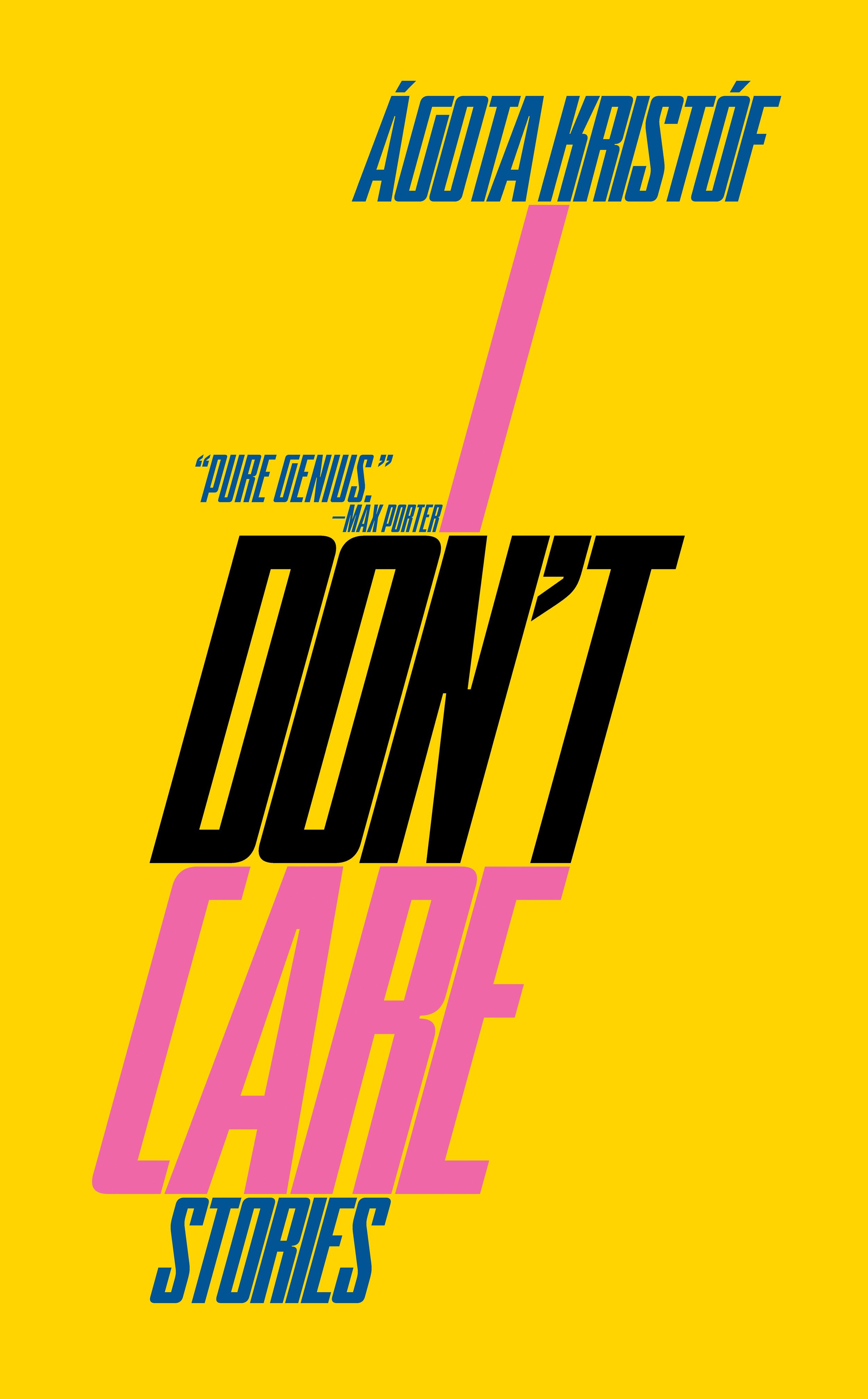REVIEW: Ágota Kristóf, "I Don’t Care"
Cover, I Don’t Care by Ágota Kristóf. Image Courtesy New Directions Books.
REVIEW
I Don’t Care
By Ágota Kristóf
Translated from the French by Chris Andrews
Paperback ($13.95)
New Directions
By Lori O’Dea
Ágota Kristóf is, on the one hand, a highly acclaimed writer whose best work is on syllabi internationally. On the other hand, she is so widely unknown that a joke circulates, started by Slavoj Žižek, that she is a mispronunciation of Agatha Christie, Queen of Crime. She’s not.
Ágota Kristóf is a Hungarian refugee who lived in Switzerland and wrote in French. She was born in the village of Csikvánd, Hungary in 1935 to an art professor mother and schoolteacher father. Kristóf had an early appetite for reading and creating stories. The idyllic childhood adventures she shared with two brothers were curtailed by war and its aftermath, and by the criminal conviction of her father. At 19, Kristóf married her former teacher. Two years later, when the Soviet military violently suppressed the Hungarian Uprising of 1956, Kristóf, her husband, and their infant child fled the country, as did a quarter million Hungarians.
Eventually, the family was resettled in Neuchâtel in francophone Switzerland. There, Kristóf labored in a clock factory with little opportunity to learn French. She continued to write poetry in Hungarian. After five years, Kristóf quit the factory, divorced, and began to study the French language, read French literature, and write stage and radio plays in French. Her first novel, The Notebook (1986), was published to international critical acclaim. Written in the first-person plural, we, its narrators are identical twin brothers composing a training manual for wartime survival. Kristóf expanded this story into a trilogy with the sequels, The Proof (1988) and Third Lie (1991). In addition to her plays, novels, and stories, Kristóf, who died in 2011, also wrote a memoir, The Illiterate (2004).
The twenty-six stories in I Don’t Care were written before The Notebook and selected for publication by the author. Chris Andrew’s unambiguous translation makes them available in English for the first time. Ranging in length from one to seven pages, with most at two or three pages, these are short but not quick reads. Some, like the title story, are encoded like poems that can be felt on the first read, but ask to be read and reread for meaning.
Above, below, blue heads, thistles.
Somebody singing something.
I don’t care: it’s not even pretty. The song is sad, and old, so old.
These opening lines drop us into a perspective. Details suggest a Swiss setting, “with the bells that clang, and the clocks,” but place and time are unspecified throughout these tales. In “A Northbound Train,” we learn that “there are no more northbound trains, or trains bound anywhere.” The optimistic narrator of “At Home,” in a modest fantasy, imagines returning home and feeling happy: in “a poor neighborhood in a big city,” where the narrator will “lie down on the bed, any bed.” Instead of a return, though, Kristóf provides a vision of displacement:
I will walk through those streets toward my house.
I will walk through those wind-lashed, moonlit streets.
Working against the narrator’s hopes, the repetition in these two lines conveys the dissociated, dreamstate walking of a person who will never arrive.
"Ágota Kristóf" by Roberto de Bonis is licensed under CC BY-ND 3.0.
These are dark works that come at us bluntly. “My Sister Line, My Brother Lanoé,” a disordered Romeo and Juliet, is a hushed dialogue between siblings, whom Kristóf gives proper names—most of her people go without. The brother speaks of his love and sexual desire for his sister. The sister, submissive and made to feel indebted, speaks of the prostitution her brother forces on her. “Love me, Lanoé,” she pleads, “or tie a rope around my neck.”
In other stories, we can perceive Kristóf experimenting. The linguistic flourishes of the angry narrator of “I Have Given Up Eating,” call to mind the rants of Dostoyevsky’s underground man.
I have given up eating. I refuse bread and tantrums. I also refuse the
maternal breast on offer to all newcomers in the dairies of grief.
A refugee misaligned with his new homeland, this narrator acts spitefully, angry that the good things in life have come too late.
“The Axe,” a banal tale of mariticide, is reminiscent of Roald Dahl’s “Lamb to the Slaughter.” (1953) Kristóf tells it as dialogue between a flustered wife and the doctor she’s summoned. Only the wife’s words appear; we infer the doctor’s. In Kristóf’s version, the doomed, murderous wife talks herself into suspicion, while Dahl’s homemaker cooks her way out of trouble.
Several of the stories are dizzyingly surreal. In “The Canal,” a dying man has dreams and nightmares. He searches for his son, his street, his house. He sees “indigo mountains hung with a necklace of lights.” He’s lost and then found, stalked by a puma. “A Northbound Train,” begins with the stark, but realistic image of a statue at an abandoned train station then spirals surreally into the story of an old man who deserted and lost his family. The abandoned place, where time is both suspended and past, evokes the enigmatic land in J.M. Coetzee’s The Childhood of Jesus, where new arrivals, in contrast to Kristóf’s refugees, have no memories of their lives before.
In these short fictions, Kristóf’s words flash visions of life simultaneously emotionless and excruciating. What hope we find in them resides in her hard-won sentences, crafted with a dictionary at hand in the French she called an “enemy” language. Painful though they are, they keep her alive.
Lori O’Dea is a writer, reviewer, and editor living in Chicago. Her portfolio can be found at loriodea.com.
Like what you’re reading? Consider donating a few dollars to our writer’s fund and help us keep publishing every Monday.



